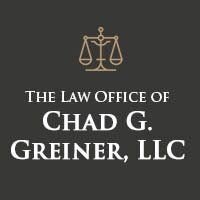Best Mortgage Lawyers in Georgia
Share your needs with us, get contacted by law firms.
Free. Takes 2 min.
Free Guide to Hiring a Real Estate Lawyer
Or refine your search by selecting a city:
List of the best lawyers in Georgia, United States
About Mortgage Law in Georgia, United States
Mortgage law in Georgia regulates the legal framework for lending, borrowing, and securing real estate with a mortgage. A mortgage is a loan in which real property is used as collateral for repayment. If the borrower defaults, the lender may initiate foreclosure to recover the owed amount by selling the property. Georgia follows a non-judicial foreclosure process, which means lenders can foreclose without going to court, provided they follow specific legal procedures. Understanding mortgage law helps protect your rights, whether you are buying a home, refinancing, or dealing with foreclosure.
Why You May Need a Lawyer
There are several situations in which a lawyer's assistance can be invaluable in mortgage matters, including:
- Reviewing and explaining the terms of a mortgage agreement before you sign.
- Negotiating better loan or refinancing terms with your lender.
- Dealing with disputes over mortgage payments or terms.
- Assisting with complex transactions, such as home purchases involving multiple parties, co-borrowers, or title issues.
- Representing you in situations involving foreclosure or loan modification efforts.
- Addressing claims of fraud, predatory lending, or violations of local or federal mortgage laws.
- Advising on the implications of mortgage default or short sales.
Local Laws Overview
Some key aspects of Georgia’s mortgage laws to be aware of include:
- Georgia uses deeds to secure debt (also known as security deeds), which provide lenders with strong foreclosure rights.
- Foreclosures in Georgia are typically non-judicial, meaning the lender does not have to go to court but must follow strict notice and sale requirements.
- The foreclosure notice must be published in the county newspaper for four consecutive weeks before the scheduled sale date.
- The foreclosure sale occurs on the first Tuesday of each month.
- Georgia does not provide a statutory right of redemption after the foreclosure sale, meaning homeowners cannot reclaim the property by paying the debt after the foreclosure is completed.
- Anti-predatory lending laws exist in Georgia, penalizing lenders who engage in unfair or deceptive lending practices.
- Deficiency judgments may be allowed in some cases, permitting the lender to seek repayment if the foreclosure sale does not cover the full amount owed, but only with a separate court proceeding.
Frequently Asked Questions
What type of mortgage security is used in Georgia?
Georgia generally uses a security deed or deed to secure debt, which allows for more straightforward non-judicial foreclosure processes.
How does foreclosure work in Georgia?
Foreclosure in Georgia is typically non-judicial. The lender must give advance notice, advertise the sale in a local newspaper, and sell the property on the first Tuesday of the month at a public auction.
Can I stop a foreclosure in Georgia?
You may be able to stop foreclosure by paying the amount owed before the sale, negotiating with the lender, seeking a loan modification, or filing bankruptcy. Consulting a lawyer is highly recommended.
Is there a redemption period after foreclosure in Georgia?
Georgia does not provide a statutory right to redeem your property after foreclosure, so acting quickly before the sale is crucial.
What are anti-predatory lending laws in Georgia?
Georgia has laws prohibiting certain unfair, deceptive, or predatory practices by lenders, such as excessive fees, fraudulent disclosures, or making loans without regard to a borrower's ability to repay.
Can lenders pursue a deficiency judgment after foreclosure?
Yes, but the lender must file a separate court action for a deficiency judgment if the foreclosure sale does not cover the entire debt owed.
Am I entitled to notice before foreclosure?
Yes, Georgia law requires lenders to properly notify borrowers of the intent to foreclose and to advertise the sale as required by statute.
Can I refinance my mortgage in Georgia if I am facing financial difficulties?
It may be possible to refinance or modify your mortgage, but eligibility depends on your lender and financial situation. Legal advice can help explore your options.
What should I do if I believe my lender is acting illegally?
Contact a knowledgeable attorney and consider filing a complaint with the Georgia Department of Banking and Finance or the Consumer Financial Protection Bureau.
How are reverse mortgages regulated in Georgia?
Reverse mortgages are available but are regulated by both federal and state laws to ensure borrower protection. Legal consultation can help clarify rights and responsibilities.
Additional Resources
If you need more information or assistance, the following organizations and agencies can provide support regarding mortgages in Georgia:
- Georgia Department of Banking and Finance
- Consumer Financial Protection Bureau (CFPB)
- U.S. Department of Housing and Urban Development (HUD)
- Georgia Legal Services Program
- Local bar associations
- NeighborWorks America for foreclosure counseling
Next Steps
If you need legal advice or assistance related to a mortgage matter in Georgia, take these steps:
- Document all communication with your lender and keep copies of important mortgage documents.
- Identify the specific issue you are experiencing, such as foreclosure notice, confusing loan terms, or possible predatory lending.
- Consult a qualified real estate attorney who is familiar with Georgia’s mortgage laws for a detailed analysis of your situation.
- Make an appointment with a housing counselor or contact organizations that specialize in mortgage and foreclosure support.
- Act promptly when facing deadlines, especially if you have received a foreclosure notice or court papers.
An experienced legal professional can help explain your rights, negotiate with your lender, represent you in legal proceedings, and work toward the best possible outcome for your unique circumstances.
Lawzana helps you find the best lawyers and law firms in Georgia through a curated and pre-screened list of qualified legal professionals. Our platform offers rankings and detailed profiles of attorneys and law firms, allowing you to compare based on practice areas, including Mortgage, experience, and client feedback.
Each profile includes a description of the firm's areas of practice, client reviews, team members and partners, year of establishment, spoken languages, office locations, contact information, social media presence, and any published articles or resources. Most firms on our platform speak English and are experienced in both local and international legal matters.
Get a quote from top-rated law firms in Georgia, United States — quickly, securely, and without unnecessary hassle.
Disclaimer:
The information provided on this page is for general informational purposes only and does not constitute legal advice. While we strive to ensure the accuracy and relevance of the content, legal information may change over time, and interpretations of the law can vary. You should always consult with a qualified legal professional for advice specific to your situation.
We disclaim all liability for actions taken or not taken based on the content of this page. If you believe any information is incorrect or outdated, please contact us, and we will review and update it where appropriate.
Browse mortgage law firms by city in Georgia
Refine your search by selecting a city.










